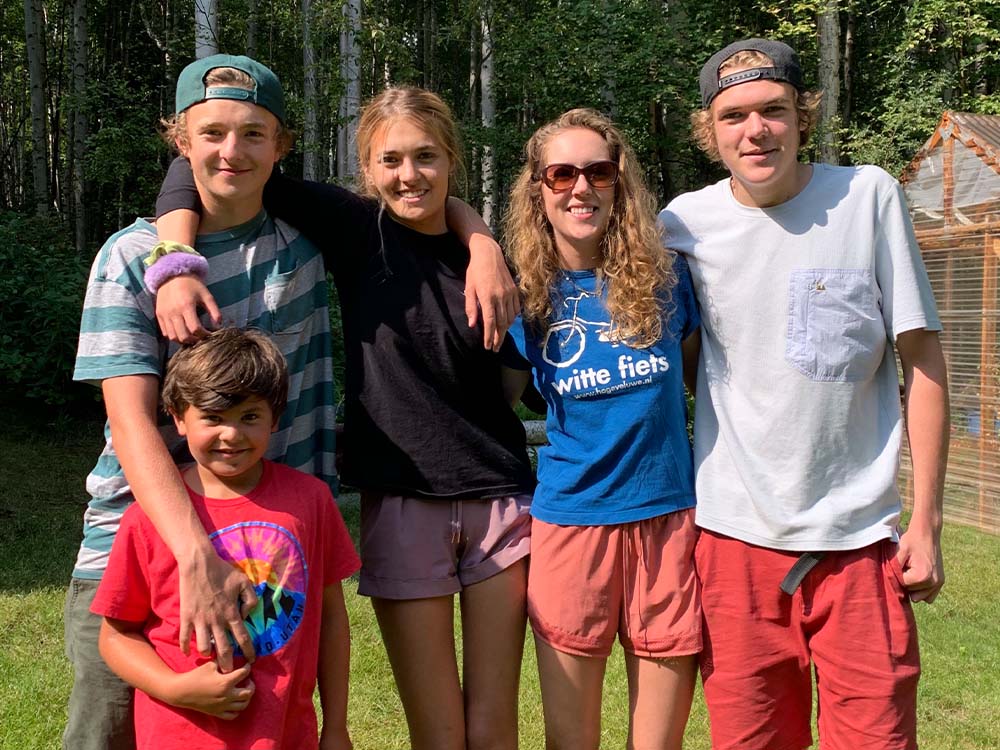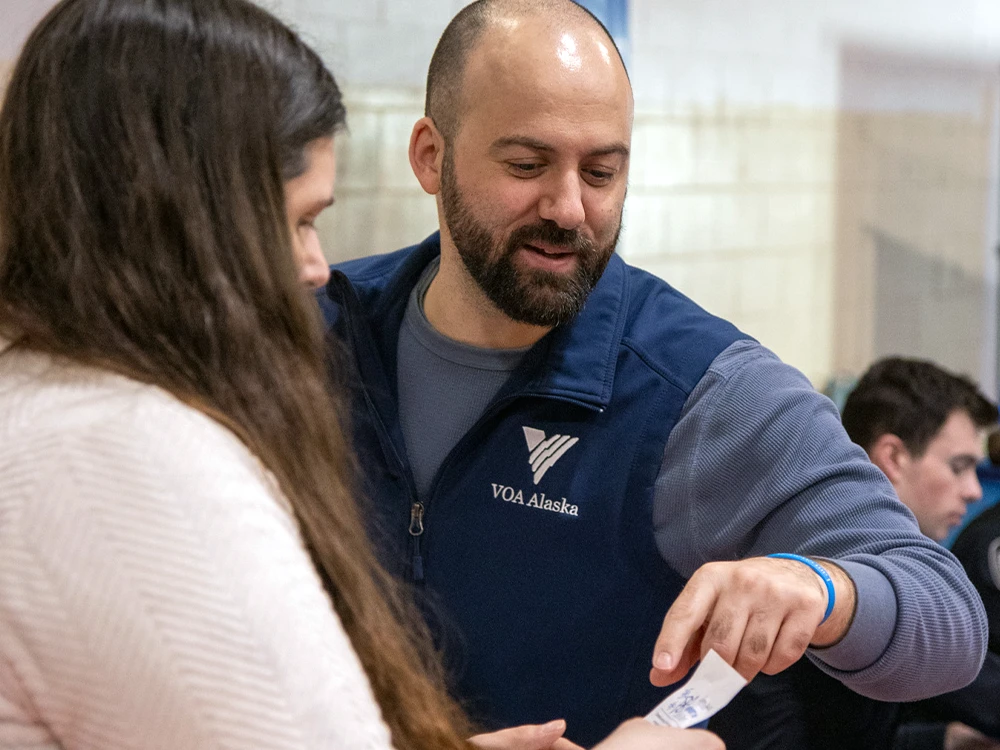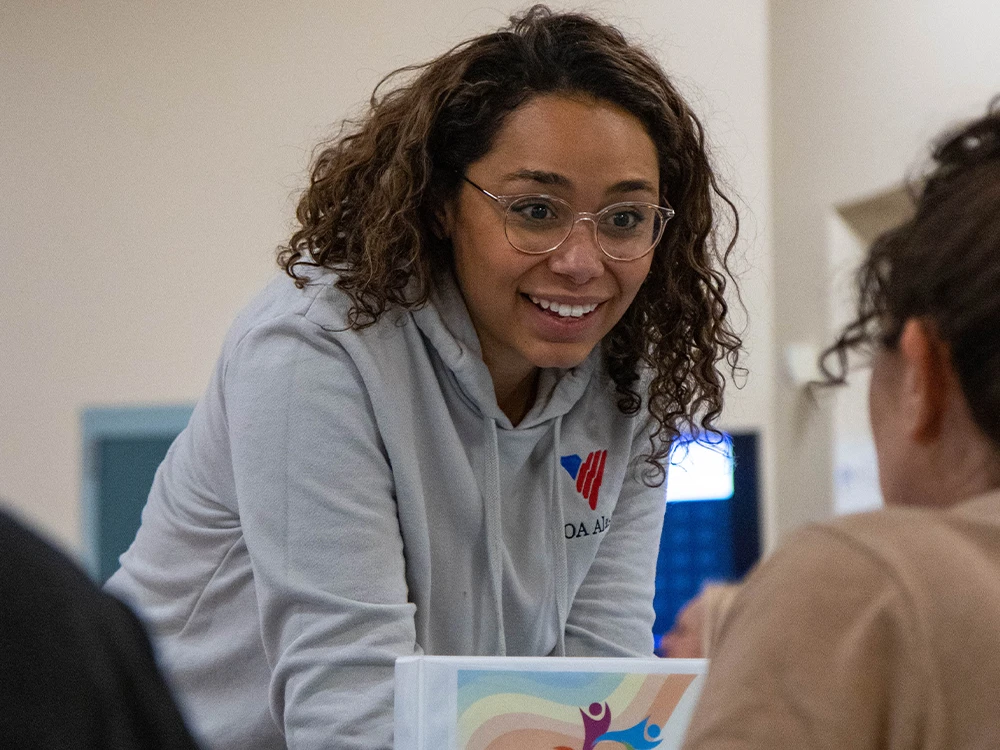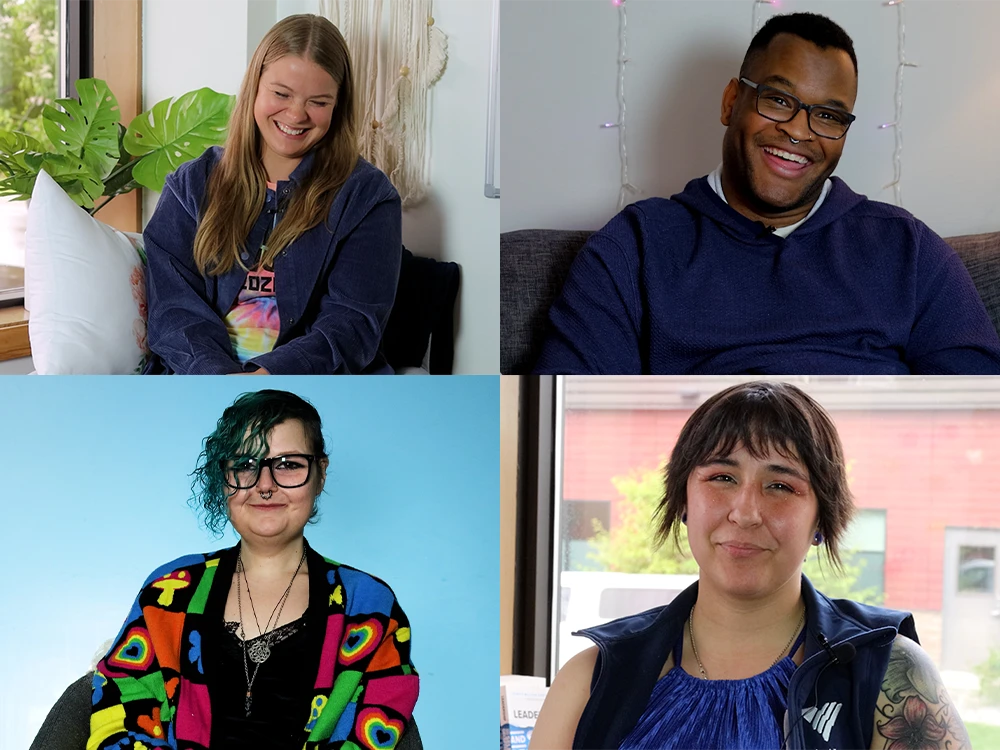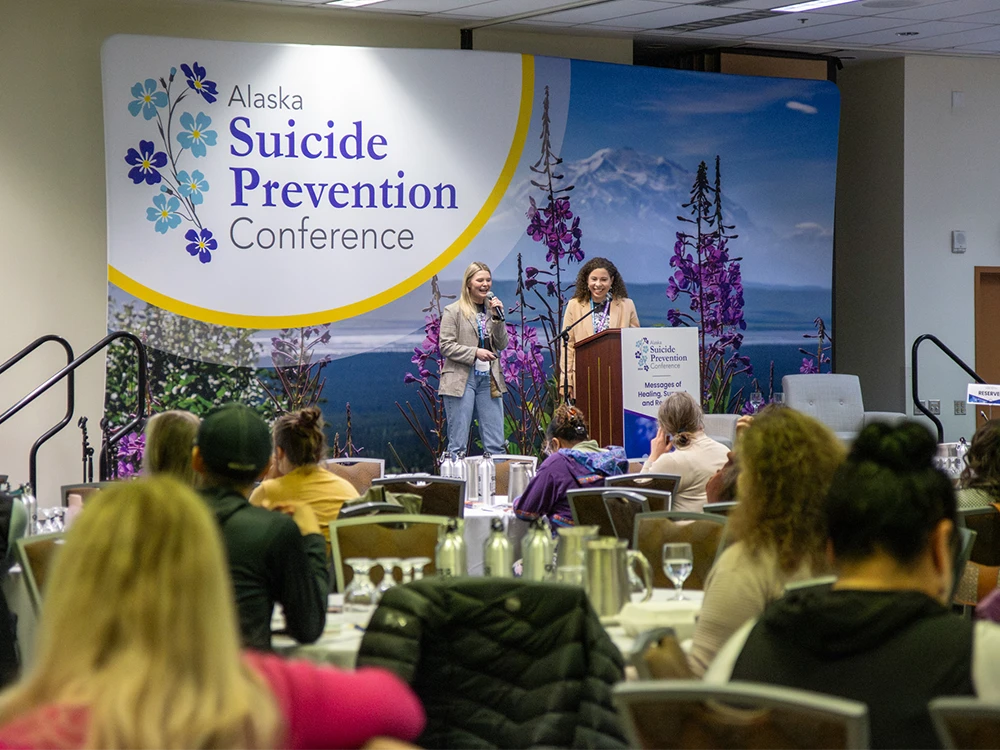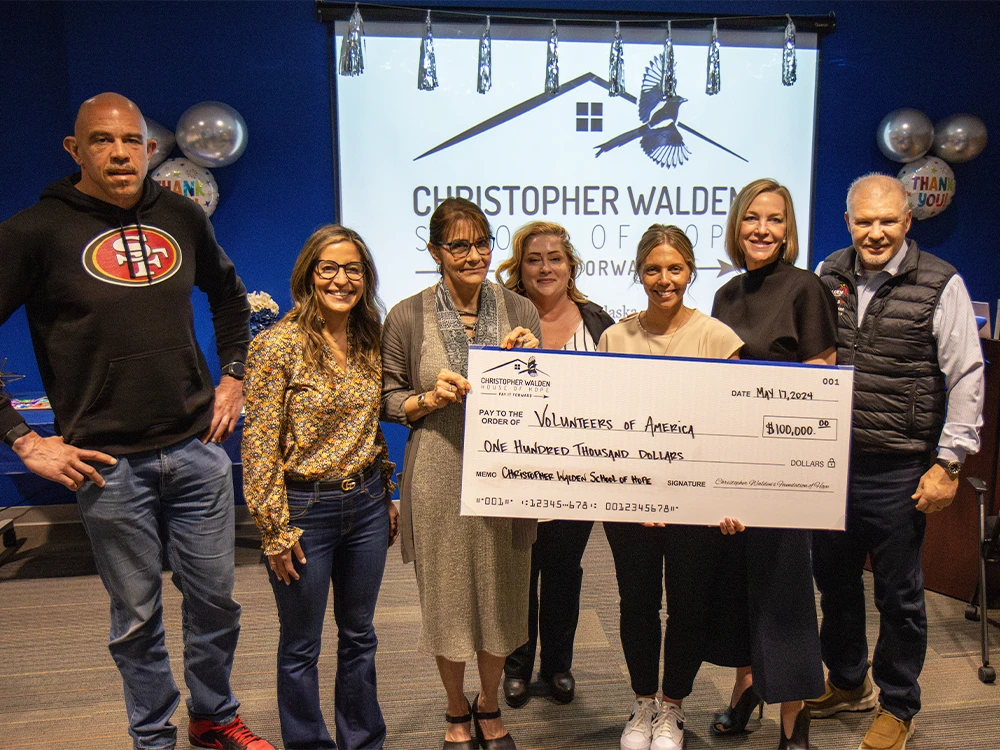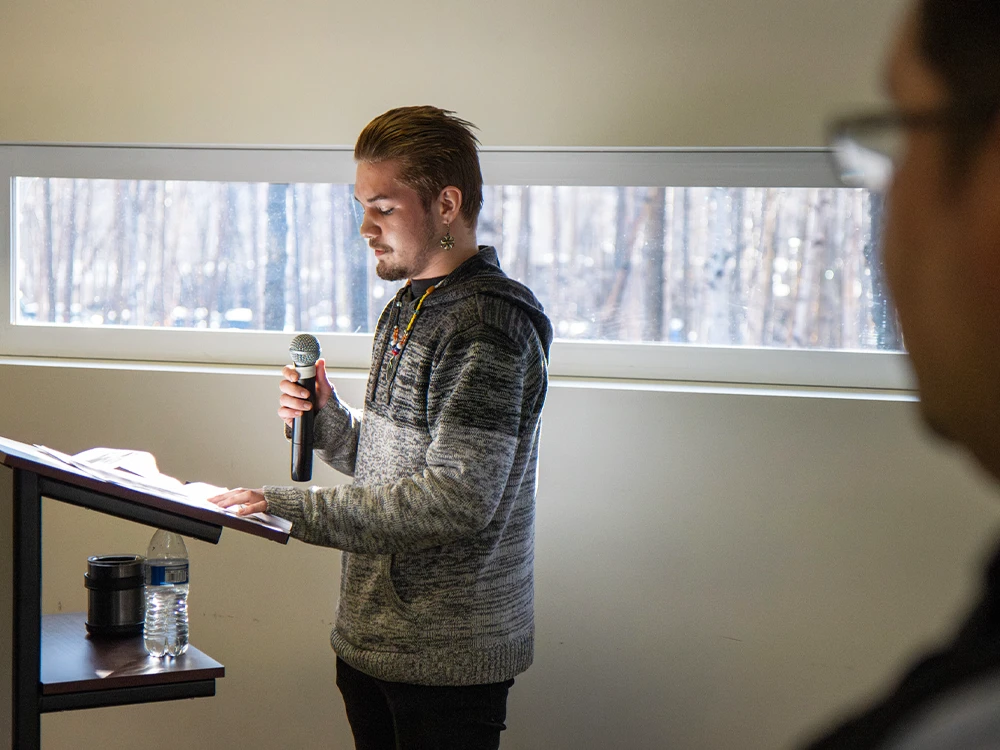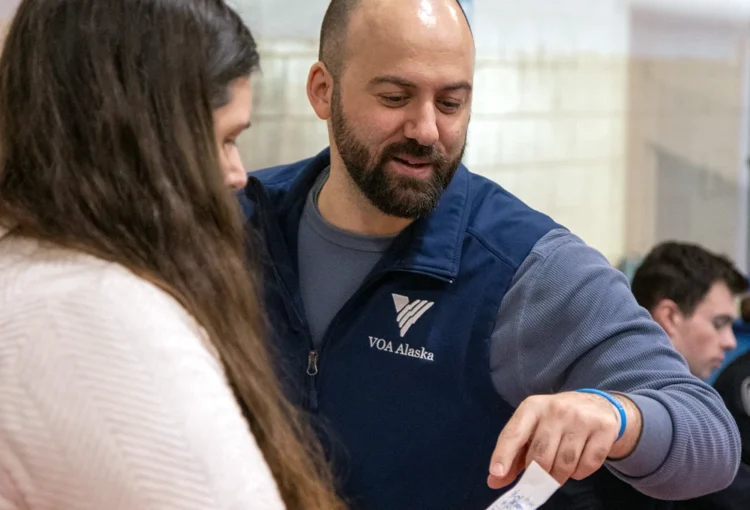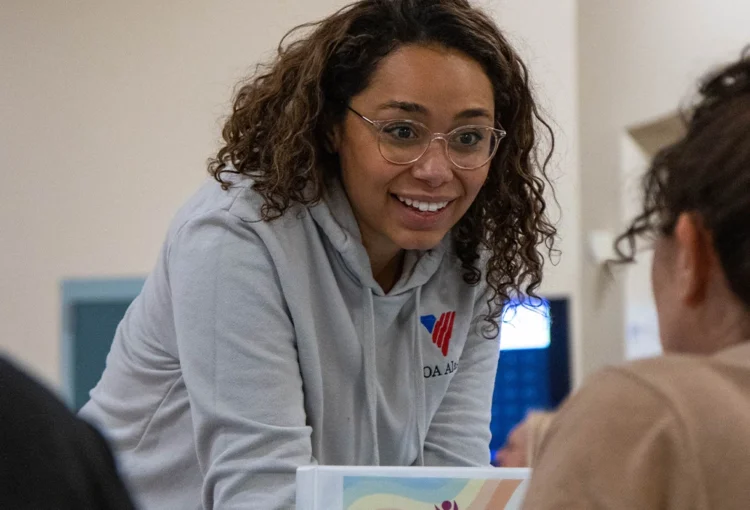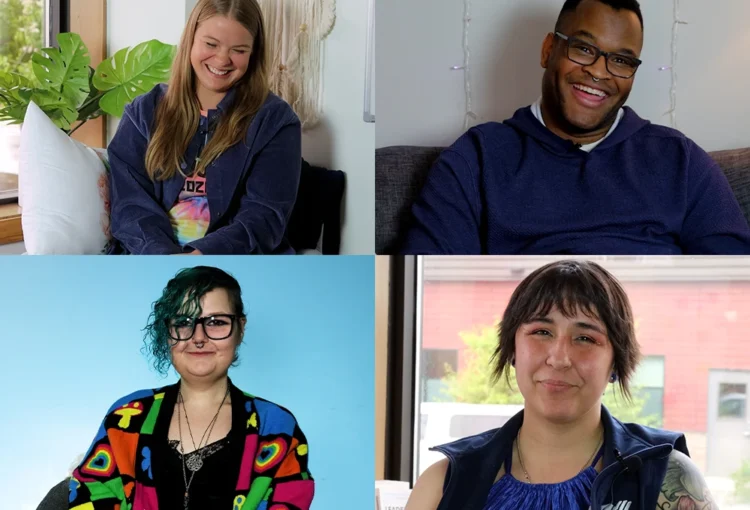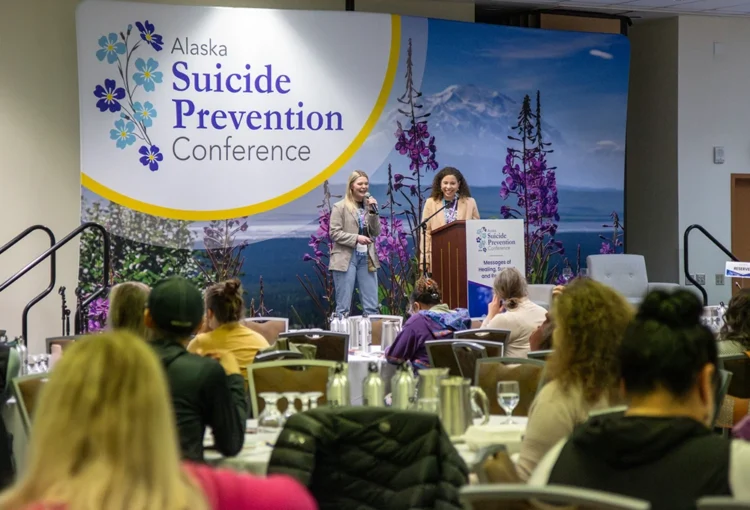Below is the extended version of “Stories of Impact: Residential Treatment,” which is featured in our 2021 Community Impact Report. Click here to view the report and find links to all of our Stories of Impact.
Tennyson is a high school senior in Fairbanks, Alaska. When he graduates, he wants to become a mental health and substance use counselor.
“That makes me really happy,” says Shannon, Tennyson’s mom. And the reason he wants to become one? Because of the help he found at ARCH.
Tennyson was bullied in junior high. Shannon describes that the “only way he knew to get out of it is to become friends with a different group of bullies.” They protected him, but also led him down a path where his grades started slipping, and he started drinking, smoking, and misusing substances. At the same time, he was battling depression and ADHD while trying to cope with past traumas.
When Tennyson started running away from home, Shannon worried he’d be arrested—or worse.
As a teacher and an educator, Shannon felt as though she had the resources to help him and knew the people she needed to speak with. They talked with counselors. They went to family therapy. And they tried other residential treatment. But Shannon struggled to find the right person, the right program, the right thing, that would finally make a real difference for her son and her family.
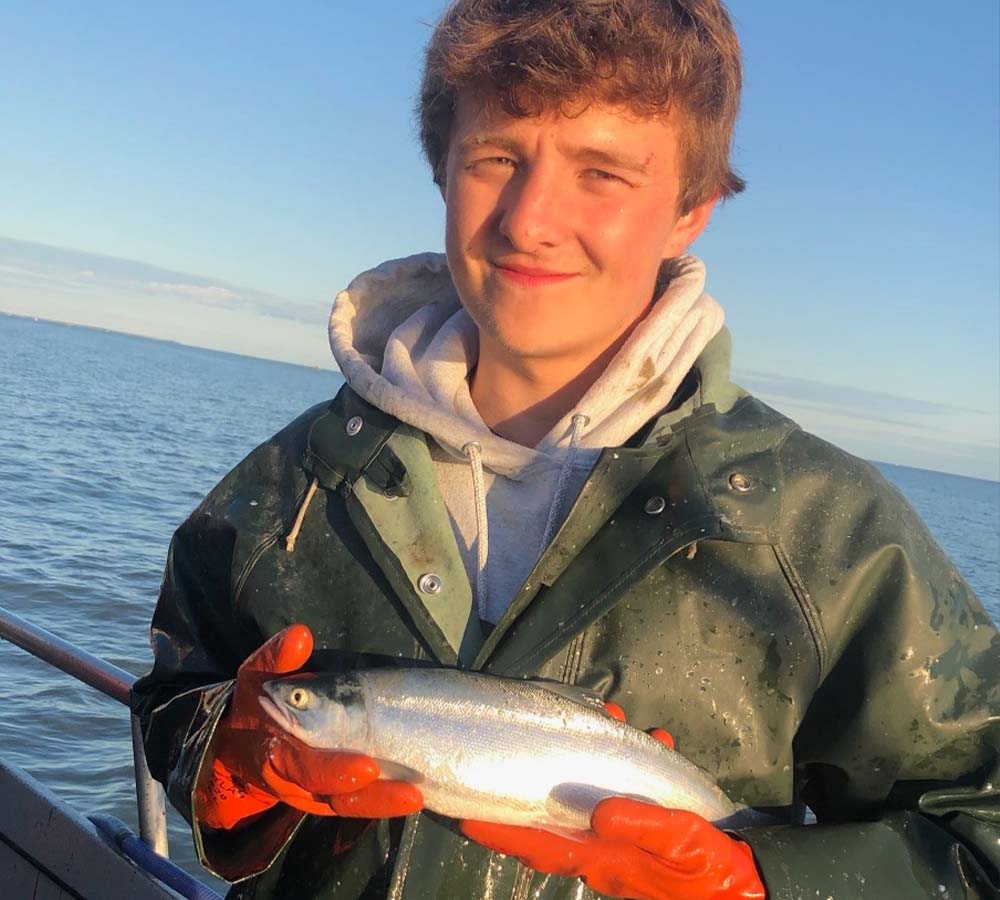
At ARCH, Compassion Breeds Compassion
Shannon found VOA Alaska online and learned about the ARCH program, our residential treatment facility in Eagle River.
“I called them, I told them my experience and what was happening with our family and that Tennyson was doing drugs. That he was running away and that he was missing school. I was just at my wit’s end.”
ARCH staff helped encourage Tennyson to enter the program. “They were really good about convincing him that this was an opportunity to work on himself.” And they explained “he wasn’t locked into this and that the treatment was only going to be as long as he needed to be there.”
Despite knowing it may be what her son needed most, Shannon says it’s the scariest thing she’s ever done.
“It was scary for him. It was scary for me. For my family. I felt like it was a poor reflection on my parenting. But I had to put myself aside and I had to put my son first. And his life is the most important thing.”
Her anxieties eased as she saw that the staff only had Tennyson’s best interests in mind. “I knew the people were committed; I knew the people there were safe. And I could see the compassion and the love just from meeting them.”
It took a few days for Tennyson to settle in—“he was really stubborn at first,” Shannon says—but soon he got to know the staff and his peers and he made friends. He also discovered that ARCH provided fun opportunities like skiing at Alyeska or roasting marshmallow over the fire pit.
Soon, Tennyson was opening up to his counselors and finding that his peers could open up to him.
“He has always struggled with trust,” Shannon says. “His clinicians was the first person I think he’s really trusted with the deepest darkest places that he’s been.”
Learning about the experiences of the other residents helped Tennyson realize that he wasn’t alone. Both in terms of what he was experiencing and the support he had back home. Tennyson came to have a lot of empathy for his peers that didn’t have the same opportunities as he did outside of ARCH.
“He’s been a really good cheerleader and support person for his peers there. And I think that’s just really helped build Tennyson’s self-esteem and get through some of the experiences that he’s gone through and is still continuing to work through.”
Bringing Your Child into ARCH “Could Literally Save their Life”
Today, Shannon says that Tennyson is so good at expressing his feelings that he almost sounds like he is a counselor. He’s learned to take deep breaths, write in his journal, or call someone that he can trust. He’s found more coping strategies and new hobbies to relax, like painting and writing poetry. And he’s looking at colleges and studying for his SATs.
Reflecting on her family’s experience with ARCH, Shannon says she felt like the staff was “not just there for Tennyson, they’re there for me and my family as well. And I really feel like they’ve saved his life and my life and my family’s sanity and just the family unit as a whole.”
To other families with similar experiences, Shannon says they shouldn’t feel embarrassed, that it’s not a reflection on their parenting. “We are all human. We all make mistakes. It’s our job to recognize when we need help. Parents don’t have all the answers. We are still learning about life too. We have to put our pride aside and ask for help. Our children should not have to pay with their lives for the trauma they have endured.”
“You shouldn’t be scared to bring your child into a program like ARCH, because it could literally save their life.”
A Reflection from Tennyson’s Clinician
I am proud to say that something ARCH does extremely well, is connection. It’s one of the most important change agents for our youth. We are able to meet clients where they are at and show them unconditional positive regard. This allows us to support the youth in meeting a basic human need and teach them to do so in a healthy way. After coming through ARCH, youth often leave with a sense of belonging and hope. This is a feeling that some of our youth feel for the first time in their life.
All of our clients are unique, but some of them require more rapport building than others. Tennyson was one of those clients who took an immense amount of rapport building. I spent many months working on aligning with Tennyson. It is often a tricky balance of aligning both with the client and also with the family. However, once trust and connection are established, the real work begins. We worked diligently on thinking errors and increasing self-efficacy. More importantly, Tennyson began to forgive himself for his past and look toward a brighter future.
Tennyson’s experiences pulled me deep into the literature and taught me so many things. I truly am a better clinician because of Tennyson and his family. It often times brings me to tears hearing the desperation in parent’s voices and the love they have for their children despite difficult circumstances, Shannon was no different. Each client that I work with leave an imprint on my soul and I will forever be grateful for the impact Shannon and Tennyson made on my heart.

